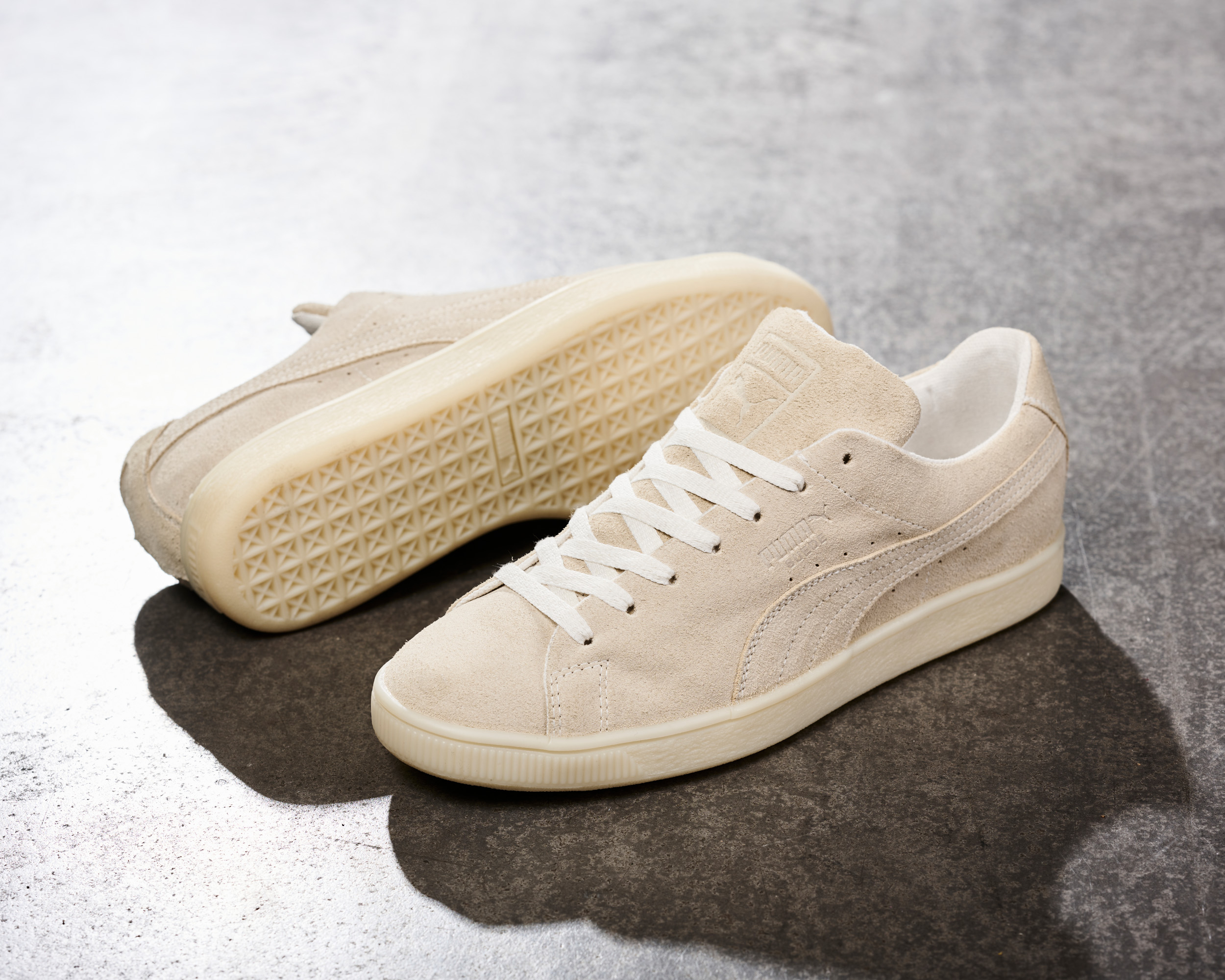PUMA’s experimental RE:SUEDE sneaker, made with eco-friendly materials such as Zeology tanned suede, TPE outsole, and hemp fibers, has successfully turned into compost under specific industrial conditions.
The company created 500 pairs of the RE:SUEDE in 2021 and sent them to a specially equipped composting area operated by its partner Ortessa Group in the Netherlands. However, a special procedure had to be established to turn the shoes into compost, as they could not be processed under standard operating procedures for industrial composting.
The shoes were shredded, mixed with green household waste, and placed into a composting tunnel. They were then sprayed with leaching-water from earlier composting that contains nutrients and heated due to biological activity and controlled air circulation in the tunnel. After approximately 3.5 months, the materials that were small enough to pass through a sieve were sold as Grade A compost for agricultural use, while the remaining materials were returned to the composting tunnel until they too had broken down to the desired level.
PUMA will continue to innovate with its partners to determine the infrastructure and technologies needed to make the process viable for a commercial version of the RE:SUEDE in 2024. The company will also share its insights in a detailed report so that other interested stakeholders can learn from the experiment and apply the learnings to their own initiatives.
The RE:SUEDE experiment is part of PUMA’s “Circular Lab,” an innovation hub led by PUMA’s innovation and design experts with the aim of creating the future of its circularity programs.






